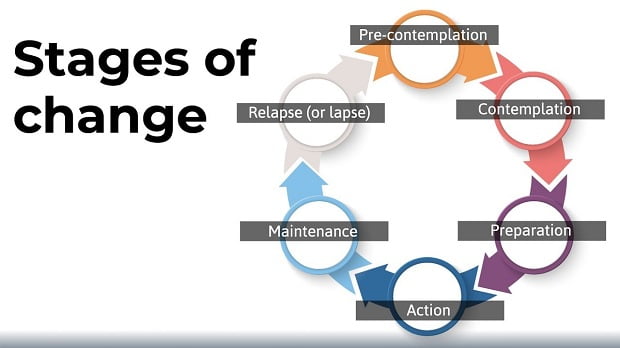Embarking on the journey to addiction recovery is a complex and deeply personal process. To navigate this path successfully, it’s crucial to understand the stages of change, recognizing that recovery is not a linear progression but a dynamic, evolving journey. Let’s delve into the key stages that individuals often encounter on their road to sobriety.
1. Precontemplation
Understanding the Problem
In the precontemplation stage, individuals may not yet recognize or acknowledge the severity of their addiction. Denial is a common defense mechanism, and the person may not see a need for change. External factors or interventions from loved ones may initiate the contemplation of a different reality.
Key Characteristics
- Lack of awareness about the negative impact of addiction.
- Resistance to the idea of change.
- Limited motivation to seek treatment.
2. Contemplation
Weighing the Pros and Cons
As individuals move into the contemplation stage, they start to acknowledge the consequences of their addiction. They begin weighing the benefits of continued substance use against the potential advantages of change. Ambivalence is a defining feature, as individuals grapple with the decision to commit to recovery.
Key Characteristics
- Awareness of the negative effects of addiction.
- Considering the possibility of change.
- Internal conflict and ambivalence.
3. Preparation
Getting Ready for Change
In the preparation stage, individuals are actively considering taking steps toward recovery. They may seek information about treatment options, develop a plan, or set a quit date. The commitment to change becomes more tangible, and the individual begins laying the groundwork for the journey ahead.
Key Characteristics
- Researching treatment options.
- Developing a concrete plan for change.
- Setting specific goals for the recovery process.
4. Action
Taking Concrete Steps
The action stage marks the actual initiation of the recovery process. Individuals implement their plan, often seeking professional help, engaging in therapy, and making lifestyle changes. This stage requires a significant commitment of time and effort, as individuals actively work toward sobriety.
Key Characteristics
- Engaging in treatment programs.
- Making lifestyle changes to support recovery.
- Facing and addressing underlying issues.
5. Maintenance
Sustaining Positive Changes
Once individuals have successfully taken action and achieved initial milestones, the focus shifts to maintaining recovery. This stage involves consolidating gains, managing challenges, and building resilience against potential relapse triggers. Establishing a support system and adopting healthy coping mechanisms are crucial in the maintenance phase.
Key Characteristics
- Establishing a support network.
- Developing coping strategies.
- Consistently practicing relapse prevention techniques.
6. Termination
Achieving Long-Term Sobriety
While not everyone reaches the termination stage, it represents the pinnacle of addiction recovery. In this phase, individuals have successfully integrated lasting changes into their lives, achieving long-term sobriety. Continuous self-reflection and reinforcement of positive behaviors contribute to sustained recovery.
Key Characteristics
- Long-term sobriety.
- Confidence in maintaining a substance-free lifestyle.
- Ongoing commitment to personal growth.
Conclusion
Understanding the stages of change in addiction recovery is essential for both individuals navigating their journey and those supporting them. Recognizing that progress may involve setbacks and nonlinear paths fosters a compassionate and realistic approach to the complex process of overcoming addiction.

